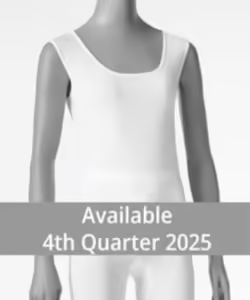by Leatha Udayabhanu.
Faith journeys are incredibly individual. Yet there are some common patterns inherent for many of us.
You start to pull away from the rigid dogmas you grew up with – familial, cultural, and/or religious – and as you do, you start to discover that you have been living a life where your actions didn’t reflect what YOU value – they reflect the values of your family, culture, and/or religious institution. And perhaps that is what clued you in that you were in need of a faith transition – living your faith didn’t feel fulfilling or aligned. (Does this sound familar?) Something was off. Something was missing. So you start exploring possibilities. You start deconstructing.
You hit a significant milestone in that you start to explore what you actually value. You realize what you actually care about! And that is exciting, and wonderful…yet, this can be a really painful process. You may realize that your past actions weren’t only not reflective of your values – they were actually directly in opposition!
Let’s take racism as an example.You start to deconstruct your faith, and in the process, realize you have been complicit in upholding values that are not your own. Maybe you taught or believed in the “dark skin curse.” You were raised with all the mental gymnastics required to believe that the priesthood ban was inspired by God. Maybe you told someone they’d one day be “white and delightsome” or maybe it’s just that you realize you heard it and didn’t really question it until now. Or you realize the pride you felt in your family participating in the Indian placement program was woefully misplaced.
So you continue to deconstruct, and in doing so, you recognize that you deeply value anti-racism. You realize that these teachings you grew up with are abhorrent to you, and that you value a society based on equity. You realize that you have been complicit in upholding systems that you now recognize as deeply harmful. (This part usually evokes a deep sense of shame. More on that later.)
So now you get really excited, passionate, and impatient to live a life that actually reflects your values! You are eager to show up in spaces and do the work! You protest. Maybe you post a few things on social media. You join anti-racism spaces and you show up, eager to make up for your complicity in racist ideals. The enormity of the work that needs to be done to heal society of racism and anti-blackness becomes apparent to you. And so you are in a hurry to “put your shoulder to the wheel” because there is so much damn work to do, and you are willing! Put me and my Mormon work ethic to work!
But then…instead of staying motivated and committed to your mission to change the world, you find yourself feeling burned out, exhausted, and/or paralyzed – wanting to take action but finding yourself immobilized. Or maybe you did take action – but found yourself navigating a lot of overwhelming conflict, and even causing harm in the very spaces where you wanted to show up and do good.
Why? Why does this happen?
Shame. I mean, you just realized that you lived a life where you frequently acted in ways that are antithetical to your core values. That feels gross, to say the least. Remembering the things we said and did that now make us cringe – well, there’s a lot of shame inherent to this process. And while it might be easy to believe that your eagerness to get to work is simply a byproduct of your passion and that good ole’ Mormon work ethic, often, it is also the quickest and easiest way to bypass that debilitating shame.Getting to work is a great way to avoid witnessing in depth the role you, your family, and your communities have played in this plague of racism. If this feels familiar to you, you’re in good company. Most of us have no idea how to cope with shame, so we do what we’ve seen modeled for us – we skip over it. We move around it. We bury it under layers of service. We collect performative acts and accolades as proof of our goodness. We put our shoulders to the wheel and push along.
But here is the very important thing to remember. Shame is internalized oppression. Shame is deep wounding. And our unhealed shit will always come out sideways and impact the people around us.
So when we don’t learn how to sit with our shame, we do everything we can to avoid feeling it. We bypass. We get to work. We stay busy. And we project that shame onto others.
The truth is, we cannot battle external systems of oppression while continually oppressing ourselves. You can’t shame yourself into liberating the world.
If you try to do this work without addressing your shame, you will continue to oppress yourself and the people around you. If you are serious about social justice work, you will absolutely find yourself triggered, activated, and fighting shame. It is the nature of the work.
But if you don’t know how to soothe and heal your shame, you will use maladaptive ways to cope with the pain of it. You’ll inflict that shame on others – often people who share your identities but just aren’t as woke as you. Show me a social justice post on IG and I’ll show you privileged folks who haven’t dealt with their shame, shaming each other in an Olympic level competition that does absolutely nothing for the cause and often stops other people from taking any action at all because they are so afraid of being shamed.
Or you will enter into spaces and when you mess up – and you will, because you’re human – instead of effectively engaging in repair, you will instead be asking marginalized people, directly or indirectly, to soothe those wounds for you. You will want someone else to soothe your shame by telling you how good or woke or allied you are. And that causes harm – most often to the very people you wanted to support.
So what is the solution?
You need a skillset – one that probably hasn’t been modeled for you. You need to know how to hold space, how to hold yourself accountable, how to repair when you cause harm, and so much more. And most of all, you need to practice the antidote to shame. You need to practice self compassion. You need to know how to pour self compassion on those deep ancestral wounds. You need to witness who you are, who you were, and love all those parts. You need to lovingly and firmly hold yourself accountable – which is not the same as shaming yourself.
You need to stop bypassing the shame and learn how to sit with it, and sit with yourself, with love, tenderness, and compassion.
If you are truly serious about fighting oppressive systems, then a self compassion practice is a MUST. Without it, you will not have the capacity to continually engage in this work. And collective liberation requires much more than a single social media post or a one time donation to the ACLU. It requires us to practice moving through shame with compassion. It requires willing folks who wear the workers seal, yes, but more than ever, it requires you to deeply care for yourself. It requires our open hearts, an ever expanding capacity to love, and our resilience. The work requires you.
And it will be long but must go on. Put your shoulder to the wheel. We need you.
Leatha Udayabhanu is a public speaker, life coach and educator who specializes in helping you deeply connect to yourself, so you can do the work you’re meant to do in creating collective liberation. Find her on Instagram @essentiallyawake and Essentially Awake.







8 Responses
I recognized so many parts of my own faith journey. Thank you—I’m off to practice some self compassion.
I’m glad to hear it! Pouring that self compassion into self consistently allows us to have a well of overflow for everyone else 🤎
I needed to read this, and like Bryn I recognized so much of myself in these words. Thank you for this crucial post.
This is so important. Thank you for sharing!
I recognize the truth in this. One thing it brought up for me is the way in which I try to measure internal work by external means and that can fail. I like how you pointed to the collective “shoulder to the wheel” mentality and how that isn’t always helpful. Some of this work requires sitting with ourselves long enough to be honest. There isn’t some concrete way to measure this and that can be uncomfortable. Can I do the work that only I can recognize, the kind I can’t put on a resume? Thanks for continually sharing your hard won wisdom Leatha.
I really appreciate this reflection. Internalized capitalism impacts this as well – a constant impetus to be “productive” in measurable ways. Rewardable ways.
Thank you for this! Self-compassion seems like such a counterintuitive solution in our world of “put your shoulder to the wheel”. I look forward to spiraling in deeper in my self-compassion to combat my internal oppression. Thanks Leatha!
“Getting to work is a great way to avoid witnessing in depth the role you, your family, and your communities have played in this plague of racism.” I absolutely see myself in using work as a way to bypass self-reflection and witnessing. I appreciate your framing here that working through shame is a skillset that can be developed.